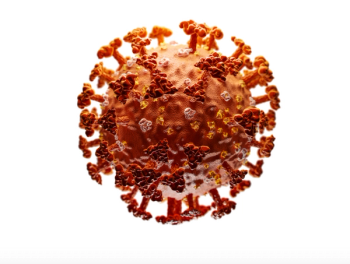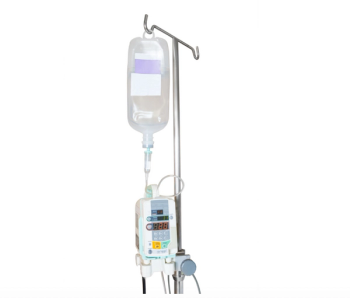
Poster presentations and speaking sessions at NASP showed the importance of clinical pharmacists in ambulatory care and opportunities to expand specialty pharmacy services in ambulatory care.

Poster presentations and speaking sessions at NASP showed the importance of clinical pharmacists in ambulatory care and opportunities to expand specialty pharmacy services in ambulatory care.

More targeted therapies often have better toxicity profiles, allowing patients to remain adherent for longer.

Recent studies have analyzed how individuals with autoimmune conditions prescribed specialty medications may be affected by the COVID-19 pandemic.

Digital health tools were a major theme during the first-ever NASP Challenge, comprising 4 of the 5 finalists.

There were a number of FDA approvals in 2019 that were either the first new therapies or first in class approved for certain conditions, and the specialty pipeline is continuing to grow at a rapid pace.

Technology can help revolutionize how a pharmacy manages patients, collects payments, communicates, and can improve overall efficiency.

Clinical education, strong data analytics, and valuing collaboration are the best ways to provide patient support and access to specialty pharmaceutical manufacturers.

Protections for covered entities under the 340B program will most likely be affected by decisions in the Senate.

The COVID-19 pandemic has contributed to specialty pharmacy outpacing traditional pharmacy in non-discounted spending.

Data standardization has been an ongoing problem in the specialty pharmacy field, affecting both patients and providers when approaching treatments.

During the COVID-19 pandemic, many families and individuals have not been able to pay their out-of-pocket costs or do not have enough money saved to pay their deductibles.

Political insiders Donna L. Brazile and Michael Steele spoke to NASP members about which issues may concern them most and getting involved in the political process.

Although working from home created challenges for contacting stakeholders, some companies saw higher accuracy and fewer sick days among employees.

A discussion at NASP 2020 looked at how pharmacy graduates can get a start in the specialty pharmacy field.

When treating these diseases, immunoglobulin is effective because of its ability to be used by the immune system to neutralize pathogens, such as pathogenic bacteria, fungi, and viruses.

Having a certified specialty pharmacist (CSP) credential can help applicants get hired and be more impactful in the specialty pharmacy arena.

It makes the most sense to get more technicians involved when pharmacies are continuing to grow, since the number of roles that are needed to operate are well suited for technicians, said Jonathan Ogurchak, PharmD, CSP.

National Association of Specialty Pharmacy gives out annual awards during virtual conference.

Because regular SMS messaging is not fully HIPAA-compliant, one solution may be to initiate contact via a text that links to an online platform.

Buffalo Bills Hall of Fame quarterback Jim Kelly shared with specialty pharmacists his story of perseverance, tincluding his fight against squamous cell carcinoma in his upper jaw.

Following the global impact of COVID-19 on the health care system in 2020, there have been some clear changes in HIV care in the United States.

The growth of telehealth, ongoing prescriber verification challenges, and the need for a universal patient identifier are all key issues that have arisen for pharmacists during the COVID-19 pandemic.

A look into the differences between specialty pharmacies in integrated delivery networks and academic medical centers.

Payers and manufacturers look for specialty pharmacy partners with several key aspects.

Consistency among caregivers can be an important factor for patients undergoing treatment for cancer.

Several drugs are in the pipeline for the treatment of specialty conditions, including cancer and multiple sclerosis.

The fate of the 340B program is unclear amid several proposals to make changes.

Women in Specialty Pharmacy Lunch brings together leaders from various aspects of the specialty landscape.

Payer requirements for outcomes data are becoming more stringent.

Testing and treatment programs should focus on populations driving new cases of hepatitis C virus.